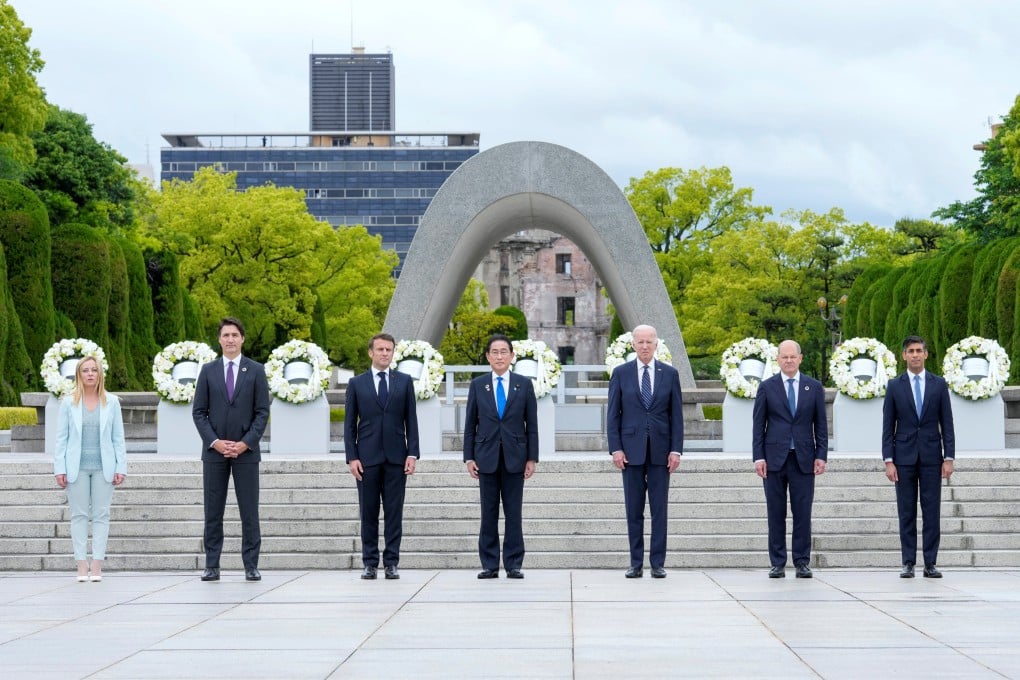US and Japan seek to unite G7 against China. Should Beijing be worried?
- Group of Seven summit in Hiroshima could be stress test for Beijing’s relations with the West, which have shown signs of a thaw in recent weeks
- Tokyo and Washington push for tougher stance on China while European members shy from conflict

Observers said that with Japan holding the G7 presidency, the Hiroshima summit was particularly important for the Indo-Pacific amid fears about an intensifying Cold War-style confrontation between two opposing camps led by the US and China.
The summit will be a test of the G7’s unity, as members – which also include Britain, Canada, France, Germany, Italy and the EU – are expected to seek consensus on a host of China-related issues, from Taiwan and supply chains to Beijing’s quasi-alliance with Moscow and its alleged economic coercion against other countries.
In a move some analysts said was aimed at Beijing, Japanese Prime Minister Fumio Kishida invited eight non-member countries to the summit in a bid to expand the US-led coalition’s influence among China’s Asian neighbours and developing countries.